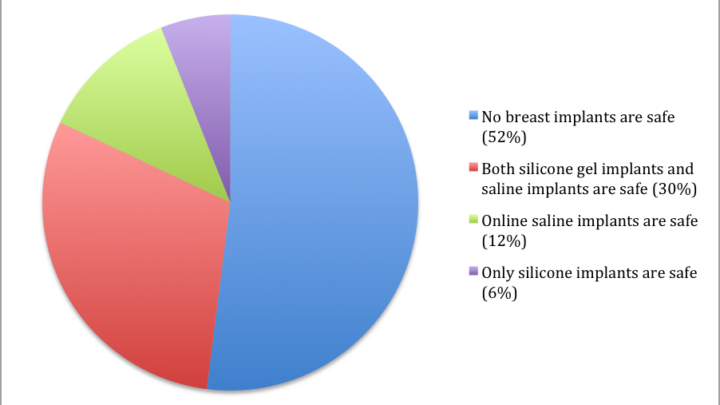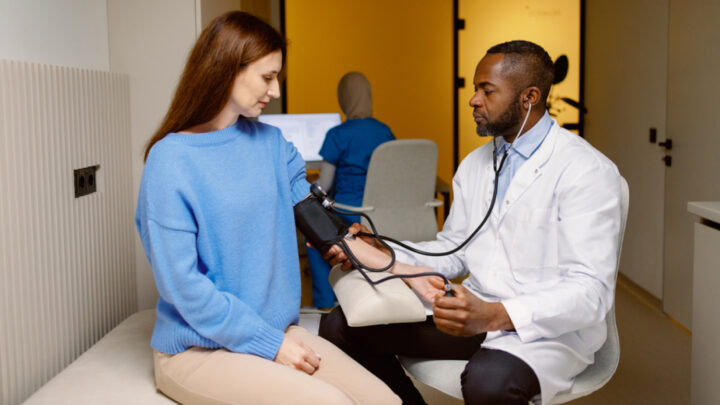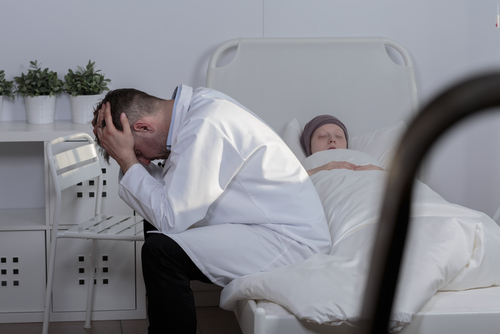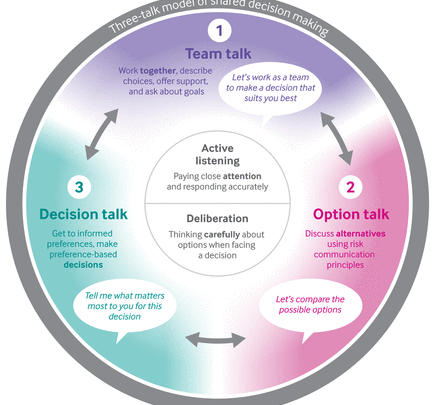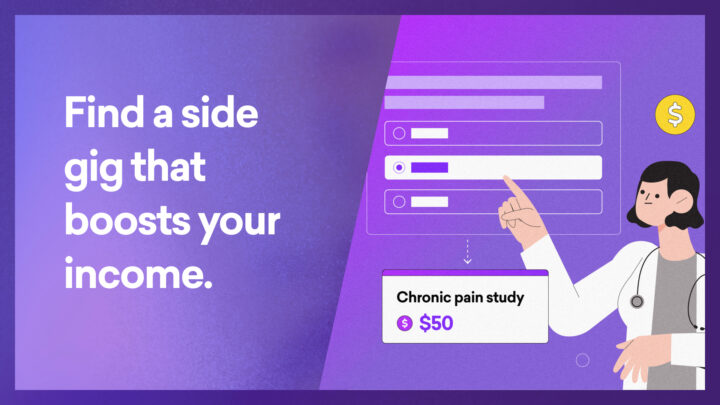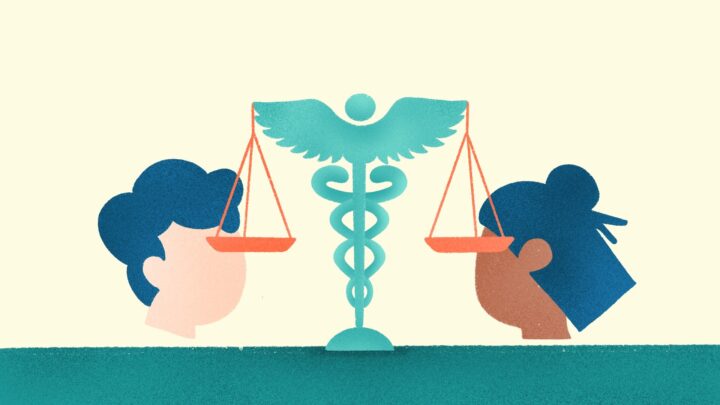
As the number of nurse practitioners (NPs) skyrockets, their impact on healthcare has come into laser focus. The fastest-growing profession in the U.S. is being lauded for facilitating faster access to care, filling in physician shortage gaps, and reducing healthcare costs. On the flip side, the number of NPs entering healthcare has some experts alarmed—as they believe NP training and education lack standardization and, in some cases, insufficient preparation.
In a recent Sermo poll of 400 physicians, 92% said they have seen a moderate or significant increase in NPs in their office, hospital, or community.
An ER physician on Sermo shared their experience working closely with NPs:
“I have 8 NPs working under my delegation. They provide invaluable service to the uninsured in our free clinic. They are true patient advocates. They all know to call me 24/7 if they have any question or need consultation on difficult cases. I conduct mandatory monthly meetings and review their charts. This level of supervision and training defines the difference between QUALITY CARE and CARELESS CARE. In emergency medicine settings, giving NPs independent treatment authority is extremely dangerous. I have many horror stories. Every patient encounter needs to be reviewed in real time by an emergency physician”
In a separate poll on Sermo of 115+ NPs, one NP shared their thoughts on training and preparedness:
“I feel that there are a lot of truths about the lack of support that NP students get from many of the online schools. Having been in hybrid education, I had opportunity to work in person with my instructors and have them come out on site visits to observe my practice. They also personally knew many of the preceptors and were able to vet them prior to placement. Though most of the schools say they assist with preceptor placement…my brick and mortar gave us a list that we were responsible for working from or finding our own preceptor. The demand for preceptors is too high at this time to support the growth of all of the current programs. Does this mean the NPs are unable to provide good care? I don’t agree. Much of the practice does come down to good critical thinking skills and a good nursing foundation and unless that has been vetted, then there may be poor outcomes. But I have also seen other clinicians in other fields including MDs who either didn’t care or didn’t seem to have the skills, make poor medical decisions. It is not only NPs”
Bloomberg News has recently elevated this conversation with a series of articles that spotlighted how poorly trained NPs may pose a risk to the patients they treat—pointing out that in the very worst situations, the patients can even die.
In the words of Bloomberg News, “Dozens of nursing students and professors who talked to Bloomberg Businessweek say the problems result from the surging number of programs, which graduate thousands of NPs a year without adequately preparing some of them to care for patients. The former director of the largest NP program in the country says she can’t recall denying acceptance to a single student. More than 600 US schools graduated students with advanced nursing degrees in 2022, according to US Department of Education data. That’s triple the number of medical schools training physicians. More than 39,000 NPs graduated in the 2022 class, according to the AANP, up 50% from 2017…”
In response to this criticism, the American Association of Nurse Practitioners (AANP) wrote an open letter to Bloomberg News challenging the article: “The authors have failed to write a balanced story by cherry picking negative information and failing to report the enormous contributions nurse practitioners (NPs) make to patient care and across the health care system.”
Sermo physicians and NPs—like the rest of the healthcare community—have a lot of powerful opinions on this topic. Sermo NPs generally understand the argument that standardized training would add value to the profession, particularly to patient care. However, they are quick to point out that the critical article of NPs is unfair and could be detrimental to their work, as well as their relationship with physicians.
In the words of one NP on Sermo:
“There are thousands of wonderfully trained NPs in practice, some in my opinion better the MDs, and this writing shines a very negative light on the nursing profession as a whole. Nurses are the most trusted profession. It should be our profession that is trying to fix it and ensure quality, not an outside news service. With the negative press that has been ongoing from many MD boards and associations each time a state pursues for more privileges or full practice authority, I feel that this article is adding fuel to the fire and it does not fully represent that masses of NPs that are adequately trained, use critical thinking skills, and know when to refer complex cases”
Another Sermo NP added:
“The discussion generated by this article is both productive and contentious. On one hand, it is productive because it brings to light critical issues that need to be addressed to ensure high-quality care. The conversation can lead to necessary reforms in NP training programs, fostering a more standardized and rigorous education process that could ultimately benefit patients. On the other hand, it is contentious because it can exacerbate tensions between NPs and physicians, especially if the conversation shifts towards undermining the role of NPs rather than focusing on constructive solutions”
In a recent poll on Sermo, 115+ NPs were asked how confident they are that the current array of training programs for NPs are adequately preparing them for the medical field. Here is how they responded:
In contrast, a separate Sermo poll of 400 global physicians revealed that
In the words of an OBGYN physician on Sermo:
“As an FQHC we employ many Nurse Practitioners, and the quality varies wildly. Many learn very outdated medical practices and clinical preceptors are often their friends who propagate the outdated knowledge. Critical thinking is missing. They refer so often for nothing and then don’t appropriately refer for serious issues. I have been sent patients who are 55 for birth control. They also don’t know what they are seeing or don’t do pelvic exams. They will just treat empirically based on the self-diagnosis by the patient. In the past two years, I have seen women with advanced cervical cancer who were never examined. Because I am so booked, a delay of months occurs”
Another Sermo physician disagreed:
“I believe that for the most part these NPs are well trained and do a great job. I have [been] working with NPs my entire career. There are some NPs that may need a lot more training. These NP are in the minority”
In yet another comment, one Sermo physician shared:
“As a reviewer for a state program, I found that many chronic pain patients who were treated by NPs ended up on opioids, rather than investigation of possible treatment. Doses were increased rather than referral. Supervision was not optimal. This created more disability”
The Bloomberg News article that is receiving so much attention went on to call out specific shortfalls in the training of NPs: “Unlike the training program for physicians, education for NPs isn’t standardized. Some candidates attend in-person classes at well-regarded teaching hospitals, but a much larger number are educated entirely online, sometimes via recorded lectures that can be years old. Interaction with professors is often limited to emails and message boards. These circumstances make the required clinical portion of an NP’s education even more important—but compared with doctors’ residencies, those stints are brief, and students say they’re of wildly variable quality…
Medical doctors have raised alarms, for reasons that include doubts about the quality of NP education and pique because nurses with doctorate of nursing degrees can call themselves doctors in most states…”
The open letter written by the AANP continued to defend their profession: “The authors have omitted the fact that NPs have consistently risen to meet our nation’s health care challenges — including risking their lives with other health care professionals to treat patients during the pandemic despite a limited supply of personal protective equipment (PPE); setting up mobile clinics or going door to door in disadvantaged communities to provide care; being among the first clinicians to treat patients with opioid use disorder in hundreds of rural counties; and providing care in rural counties, after other clinicians left and hospitals closed, to ensure continued access.”
Unfortunately, these types of hit pieces can be written about any profession, but distinctly have no place in our nation’s health care system. This type of journalism not only disparages an honorable profession at a time in which our country is struggling to build our nation’s workforce, but also frightens patients from seeking needed care…
NPs typically complete at least six years of formal nursing education and pass national board certification prior to getting licensed and entering practice. NPs enter their graduate degree programs as registered nurses having already completed formal undergraduate Bachelor of Nursing programs, which include clinical rotations. During graduate school, NPs complete academic coursework and additional clinical rotations that prepare them to independently diagnose, manage patient care and prescribe medications and other treatments.
NP programs are nationally accredited and the national accreditation bodies are held accountable to the U.S. Department of Education (DOE). NPs complete hands-on, supervised patient care clinical rotations that are embedded in their graduate programs and must adhere to accreditation standards. NP students must demonstrate they have integrated this prior knowledge and skill — and do not progress, or graduate, simply based on hours spent in rotation. NPs are required to pass national certification board exams and retain board certification throughout their careers…”
In the recent Sermo poll of physicians, when they were asked which areas of healthcare have improved or benefited from the work of NPs, here is how they responded:
When the physicians were asked what they think would be valuable for better supporting NPs and helping to standardize the type of care they provide, here is how they responded:
In the poll of NPs, when they were asked which risks they associate with the rapid increase in online NP programs, here is how they responded:
When NPs were asked which path they would choose to handle a situation in which a colleague appears ill-equipped for their tasks, here is how they responded:
In a separate survey on Sermo, 200+ NPs responded to questions about their experiences and opinions regarding NP training. Here’s the information they shared—which can help shed light on what NPs look for and value in the training programs they choose.
When asked, which of the following best describes the classroom portion of the NP training program they went through, they said:
When asked which features they considered the most when selecting their NP training program, they said the following (and were allowed up to 3 selections):
This is a complex issue, and the opinions vary tremendously from member to member, from NP to NP, from physician to physician. Below are more insights from Sermo members—in their own words:
“In my experience some NPs are really good, but some aren’t and even seem to lack an understanding of basic concepts. In residency, I felt like I was on par with some of the NPs in our program, while I was only in my first or second year of training. If NPs can practice independently like physicians can, and bill at the same rate, etc., they should be held to the same standards. I would be in favor of NPs having to complete residency training before they can call themselves a specialist in whatever discipline they choose to specialize in. If a physician wouldn’t be considered adequately trained without completing residency, why do NPs get to skip residency and portray themselves as physicians and even specialists? Many of my patients don’t even know they aren’t doctors, and refer to them as Doctor so-and-so.”
“The problem is not the NPs, lots of them are good but the problem is the corporate medicine aspect which entitles a CEO or COO to be on top of health care providers.”
“I accept that training needs to be improved, standardised, and regulated for new entrants. However, the vast majority of NPs in my field are experienced nurses who have undertaken specialised, role-focused additional training. With appropriate delegation and supervision, these people are extremely valuable additions to the extended surgical team.”
“The training focuses too much on theoretical implications as opposed to hands on anatomy, physiology and assessment. Nurse practitioners are treated with the same level of expectation to their medical colleagues. Yet they do not receive the same medical and clinical training required.”
“It is always necessary to question educational standards and curriculum to ensure a high degree of preparedness, but detrimental to insinuate that NPs are not educated or prepared to provide”
“Appalled and disappointed in the attempt to discredit NP education and qualifications.”
“My overall reaction is one of concern, as the issues raised could have significant implications for patient care and the healthcare system at large. The article draws attention to potential gaps in training that could lead to suboptimal patient outcomes, a point that should be carefully considered by both educational institutions and healthcare policymakers.”
“One of my biggest concerns is the online learning platform that seems to dominate NP education now. Online just seems insufficient for clinical preparation, so they need more clinical hours IMO. I had a model lab to do physical exams on real people (volunteers), including Pap smears. Our final before ever going to clinical was a mock lab where “patients” would give us complaints and symptoms and we had to come up with a list of DD and treatments. I also think that candidates are missing critical experiences prior to getting into school. When I applied, you needed at least a year of relevant clinical experience. I’m seeing more and more NP students getting accepted into programs without any experience. They need more hands on and experience.”
Interested in more? Check back any time and follow us on Facebook, Twitter, and LinkedIn for the latest and greatest in physician insights.
Are you a physician or healthcare practitioner?
Explore the many benefits of Sermo’s medical community and join in on all the exciting conversations when you sign up for free today.
Every day thousands of Sermo member physicians and advanced practice providers from diverse backgrounds and experiences exchange knowledge with each other. Sermo is the original medical social network that empowers today’s healthcare professionals. Over 1.5 million fully verified HCPs across more than 150 countries come to our platform to talk with peers, participate in paid medical studies, solve challenging patient cases, contribute to the world’s largest database of drug ratings – and enjoy a few laughs along the way.


